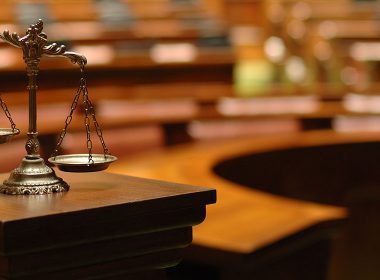Snapshot
- Oral evidence, both through examination in chief and cross-examination is an important source of evidence in court hearings.
- The adoption of video conferencing (‘AVL’) has raised concerns since the 1990s as to whether oral evidence could be adduced effectively. The COVID-19 pandemic and the expanded use of AVL brought these issues to the fore.
- When the AVL clearly fails, an online hearing cannot continue. However, rather than failing there may be a degradation in quality of the audio or video. A growing body of psychological research provides an important source of guidance for courts as to the impact of degradation in quality on witness examination.
Oral evidence, both through examination in chief and cross-examination is an important source of evidence in court hearings. In particular, where there are contested facts the reliability, credibility and veracity of the witness will be important. However the High Court in Fox v Percy (2003) 214 CLR 118; [2003] HCA 22, while accepting that a trial judge may draw on their impression of the credibility of witnesses in reaching their decision, also warned there are ‘dangers [in] too readily drawing conclusions about truthfulness and reliability solely or mainly from the appearance of witnesses’ (at [30]).
With this general admonishment in mind, oral evidence may now be given online rather than in person. The adoption of video conferencing, usually referred to as an audio visual link (‘AVL’), which may involve a witness testifying using audio, or audio and visual technology, has raised concerns since the 1990s as to whether oral evidence could be adduced effectively. This experience has been substantially increased and refined with the conduct of fully-online hearings as part of the response to the pandemic. This article sets out a number of judicial views on this issue. The article then takes the novel step of considering the assessment of oral evidence online through research findings from the psychology literature, including by way of the conduct of experiments.
Pre-pandemic views
Prior to the pandemic, court opinion was divided as to the use of AVL. One stream of authorities took the view that given the advanced state of AVL technology and because of the savings in time and cost, a substantial case needed to be made out to warrant the Court declining to make an order for evidence to be taken by AVL. Another number of equally authoritative judgments stated that the presumption should be that oral examination should be given in the normal manner, live and in court.
In Campaign Master (UK) Ltd v Forty Two International Pty Ltd (No 3) [2009] FCA 1306 the competing lines of authority were summarised by Buchanan J. His Honour was dealing with an application for AVL to be used to allow a witness to testify from London so as to avoid cost and inconvenience. The application was dismissed. Buchanan J was ‘particularly troubled by the prospect (or possibility) that the cross-examination of an important witness might be rendered less effective by the limitations of video link technology or the absence of the witness from the courtroom’. A key benefit for in person testimony was explained (at [78]) as:
‘It provides the Court with a more satisfactory environment in which to assess the nature, quality and reliability of responses by a witness, both to questions and to the overall situation presented by the necessity to give evidence in court. To my mind there remains, even in the modern context, a certain “chemistry” in oral interchanges in a courtroom, whether between a judge and counsel (or other representative) or between cross-examiner and witness. I would not wish too lightly to deprive a cross-examiner of that traditional forensic element…’
The main concerns raised in the case law were technical difficulties (e.g. delay or freezing in voice or picture transmission), the Court being unable to observe the witness and their demeanour, including being able to assess credit or overall credibility of a witness, and the fairness to the opposite party in the manner in which the trial will be conducted such as impinging on the effectiveness of cross-examination in elucidating the truth.




